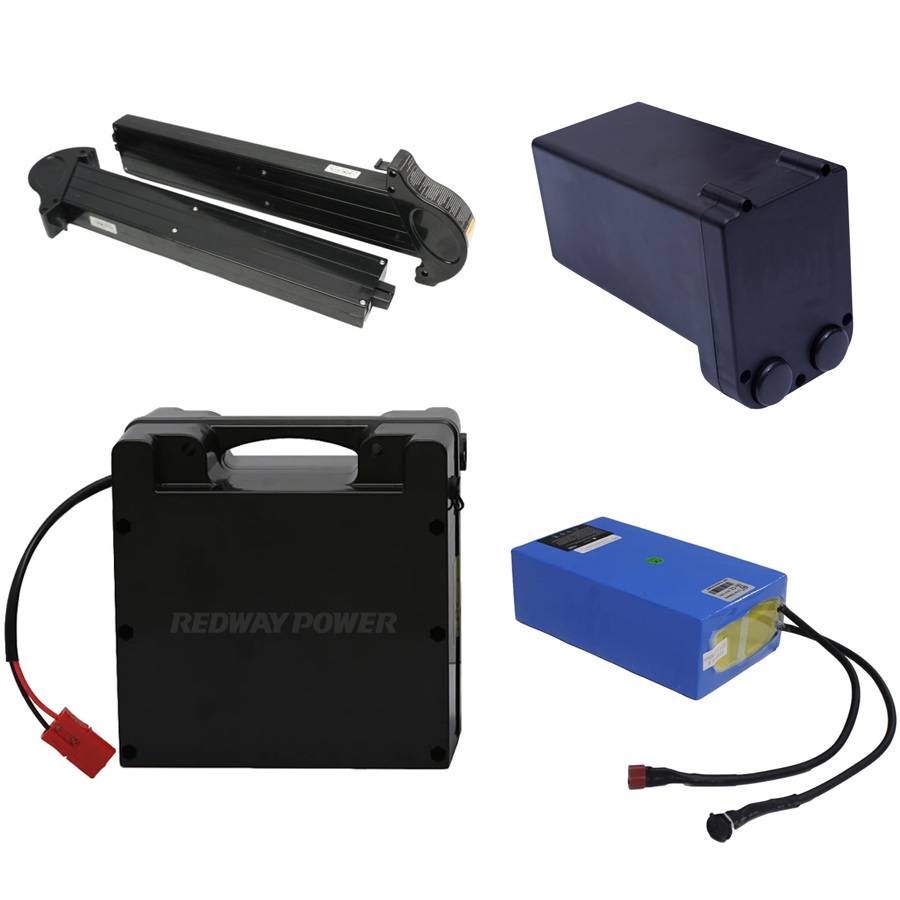- Lithium Golf Cart Battery
- Forklift Lithium Battery
-
48V
- 48V 210Ah
- 48V 300Ah
- 48V 420Ah (949 x 349 x 569 mm)
- 48V 420Ah (950 x 421 x 450 mm)
- 48V 456Ah
- 48V 460Ah (830 x 630 x 590 mm)
- 48V 460Ah (950 x 421 x 450 mm)
- 48V 460Ah (800 x 630 x 600 mm)
- 48V 460Ah (820 x 660 x 470 mm)
- 48V 500Ah
- 48V 560Ah (810 x 630 x 600 mm)
- 48V 560Ah (950 x 592 x 450 mm)
- 48V 600Ah
- 48V 630Ah
-
48V
- 12V Lithium Battery
12V 150Ah Lithium RV Battery
Bluetooth App | BCI Group 31
LiFePO4 Lithium
Discharge Temperature -20°C ~ 65°C
Fast Charger 14.6V 50A
Solar MPPT Charging - 24V Lithium Battery
- 36V Lithium Battery
- 48V Lithium Battery
-
48V LiFePO4 Battery
- 48V 50Ah
- 48V 50Ah (for Golf Carts)
- 48V 60Ah (8D)
- 48V 100Ah (8D)
- 48V 100Ah
- 48V 100Ah (Discharge 100A for Golf Carts)
- 48V 100Ah (Discharge 150A for Golf Carts)
- 48V 100Ah (Discharge 200A for Golf Carts)
- 48V 150Ah (for Golf Carts)
- 48V 160Ah (Discharge 100A for Golf Carts)
- 48V 160Ah (Discharge 160A for Golf Carts)
-
48V LiFePO4 Battery
- 60V Lithium Battery
-
60V LiFePO4 Battery
- 60V 20Ah
- 60V 30Ah
- 60V 50Ah
- 60V 50Ah (Small Size / Side Terminal)
- 60V 100Ah (for Electric Motocycle, Electric Scooter, LSV, AGV)
- 60V 100Ah (for Forklift, AGV, Electric Scooter, Sweeper)
- 60V 150Ah (E-Motocycle / E-Scooter / E-Tricycle / Tour LSV)
- 60V 200Ah (for Forklift, AGV, Electric Scooter, Sweeper)
-
60V LiFePO4 Battery
- 72V~96V Lithium Battery
- Rack-mounted Lithium Battery
- E-Bike Battery
- All-in-One Home-ESS
- Wall-mount Battery ESS
-
Home-ESS Lithium Battery PowerWall
- 24V 100Ah 2.4kWh PW24100-S PowerWall
- 48V 50Ah 2.4kWh PW4850-S PowerWall
- 48V 50Ah 2.56kWh PW5150-S PowerWall
- 48V 100Ah 5.12kWh PW51100-F PowerWall (IP65)
- 48V 100Ah 5.12kWh PW51100-S PowerWall
- 48V 100Ah 5.12kWh PW51100-H PowerWall
- 48V 200Ah 10kWh PW51200-H PowerWall
- 48V 300Ah 15kWh PW51300-H PowerWall
PowerWall 51.2V 100Ah LiFePO4 Lithium Battery
Highly popular in Asia and Eastern Europe.
CE Certification | Home-ESS -
Home-ESS Lithium Battery PowerWall
- Portable Power Stations
We accept OEM, ODM and SKD orders
Wheelchair Lithium Batteries Factory Wholesale
Redway Power
Wheelchair Lithium Batteries, One-Stop Solution
Redway Power excels in crafting Wheelchair Lithium Batteries, meticulously designed for electric wheelchairs. These rechargeable lithium-ion batteries, designed by Redway, serve as the powerhouse for the wheelchair's electric motor, offering high energy density, a lightweight design, and extended runtimes.
Tailored for individuals with mobility challenges, Redway Power's Wheelchair Lithium Batteries enhance the efficiency and convenience of electric wheelchairs. With advanced lithium-ion technology, these batteries provide users with increased mobility and independence, covering more distance on a single charge. Exemplifying Redway Power's commitment to innovation, these batteries set a new standard for practicality and reliability, catering to diverse mobility needs.
Redway Power for Batteries OEM/ODM
Best Wheelchair Lithium Battery Manufacturer 2024
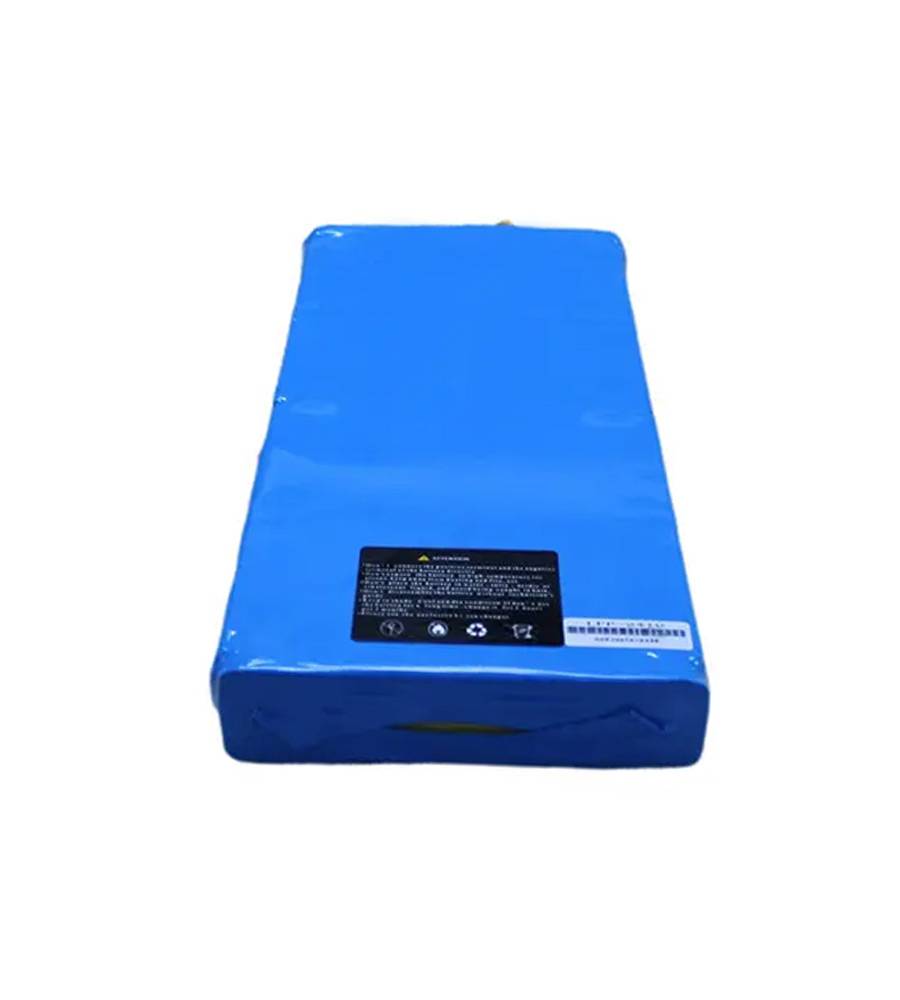
24V 10Ah
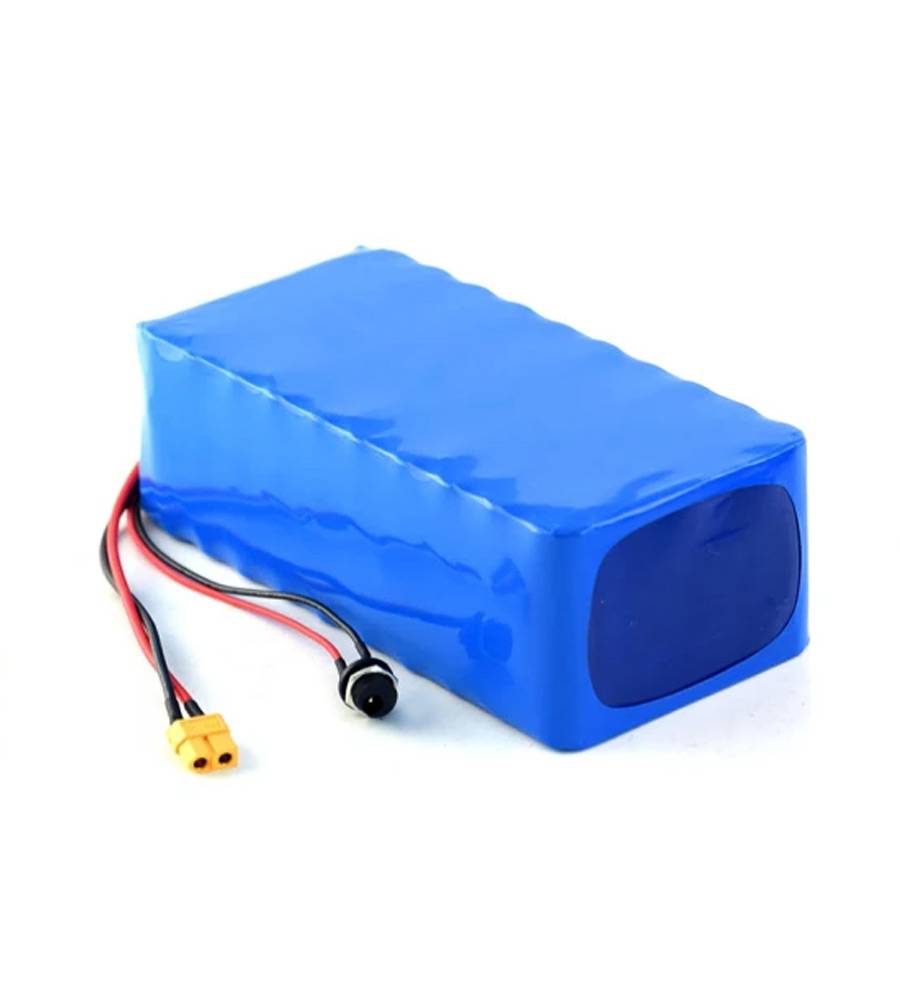
24V 11Ah
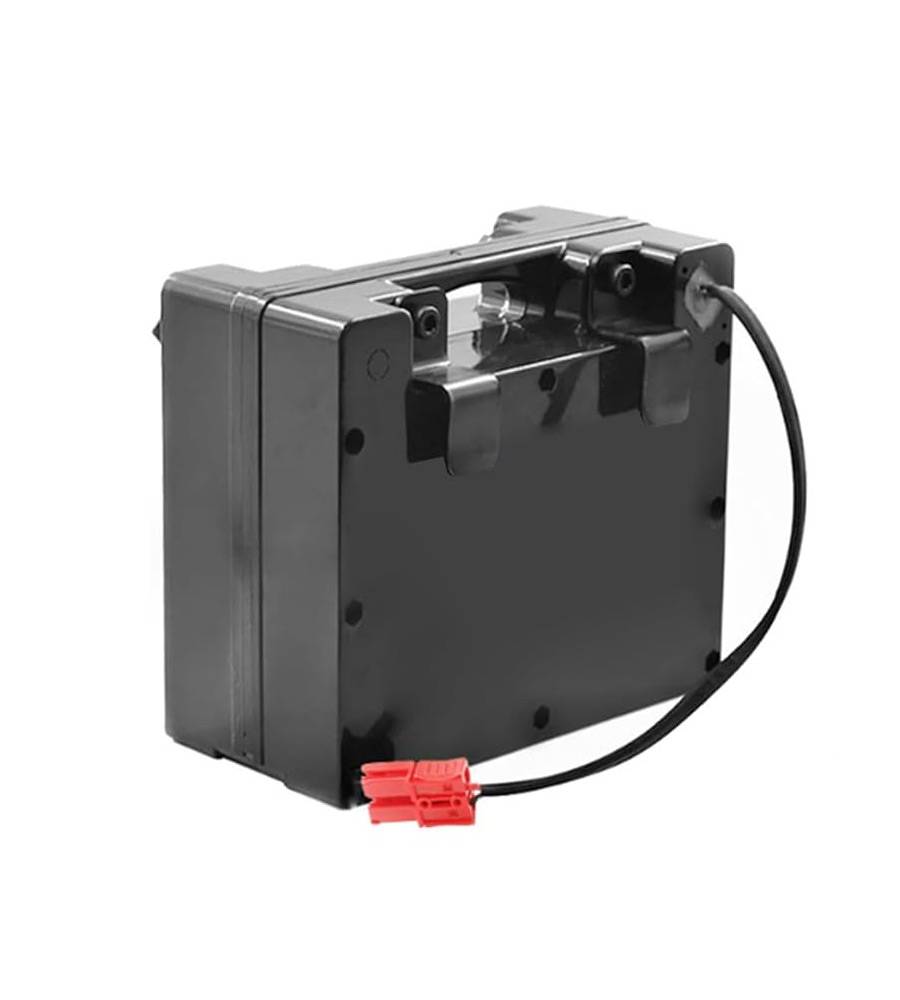
24V
10Ah / 12Ah / 15Ah / 20Ah / 25Ah
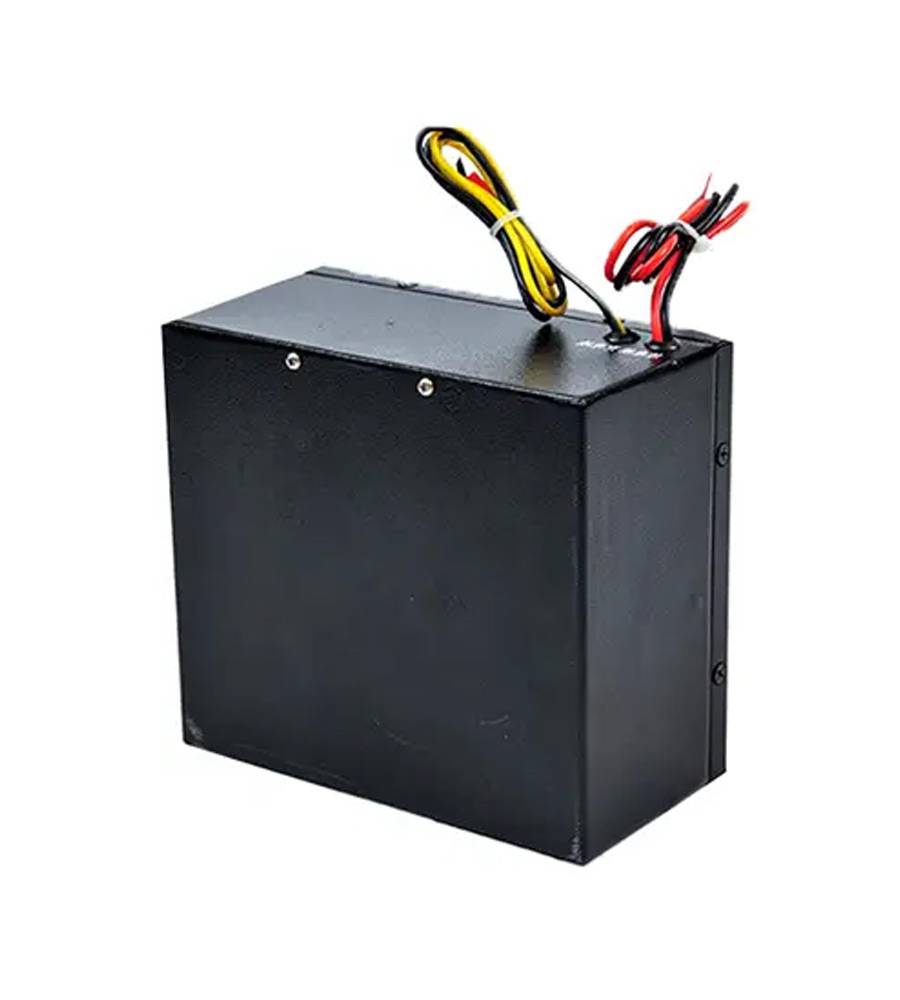
24V 20Ah
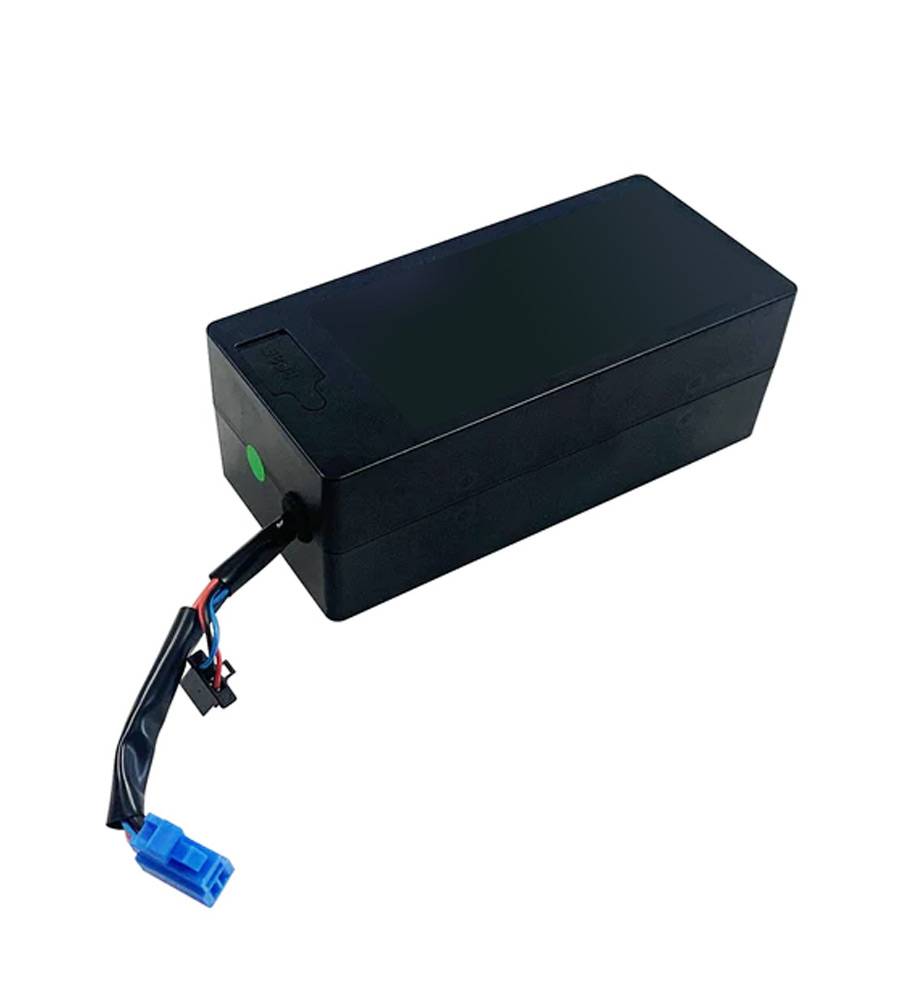
24V 20Ah
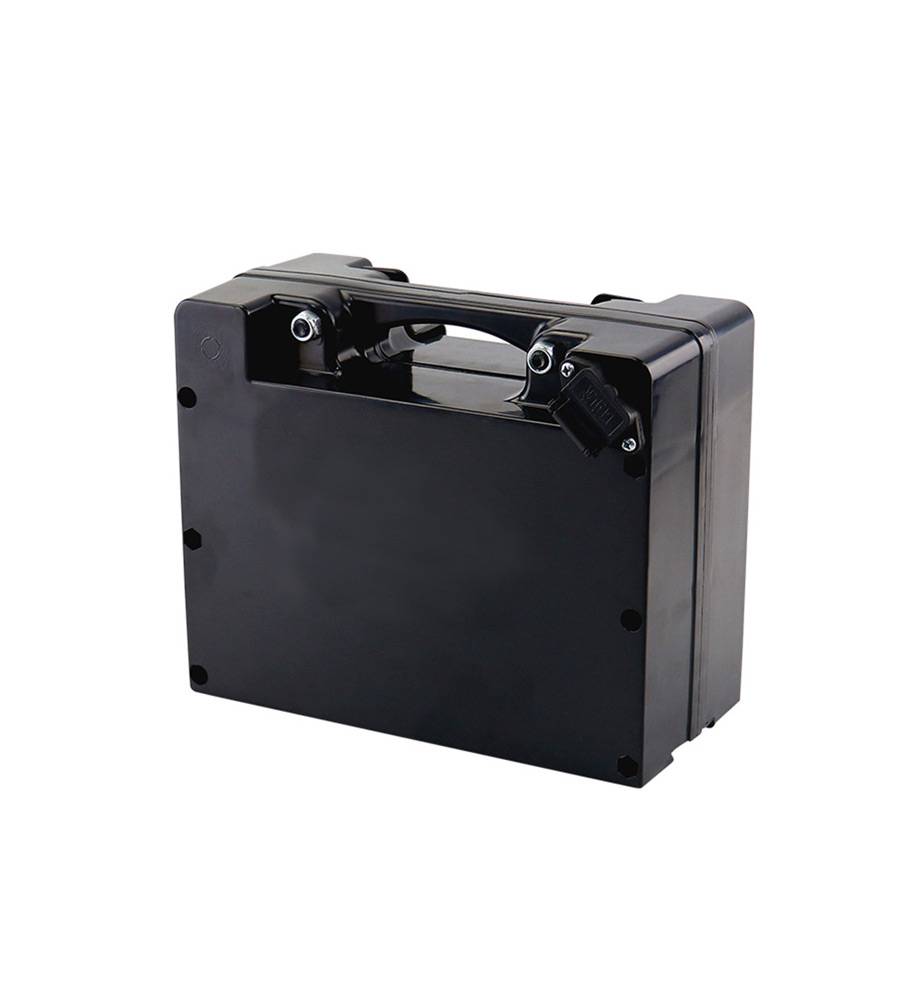
24V
10Ah / 16Ah / 20Ah / 24Ah / 30Ah
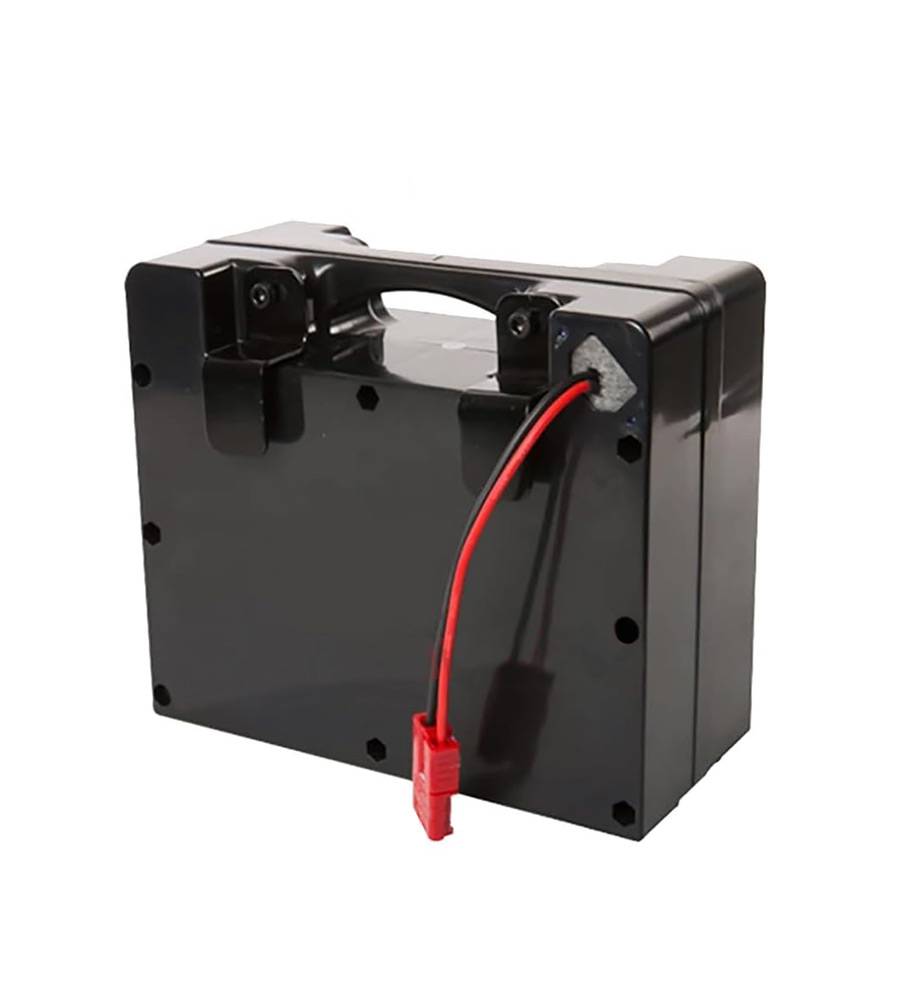
24V 35Ah
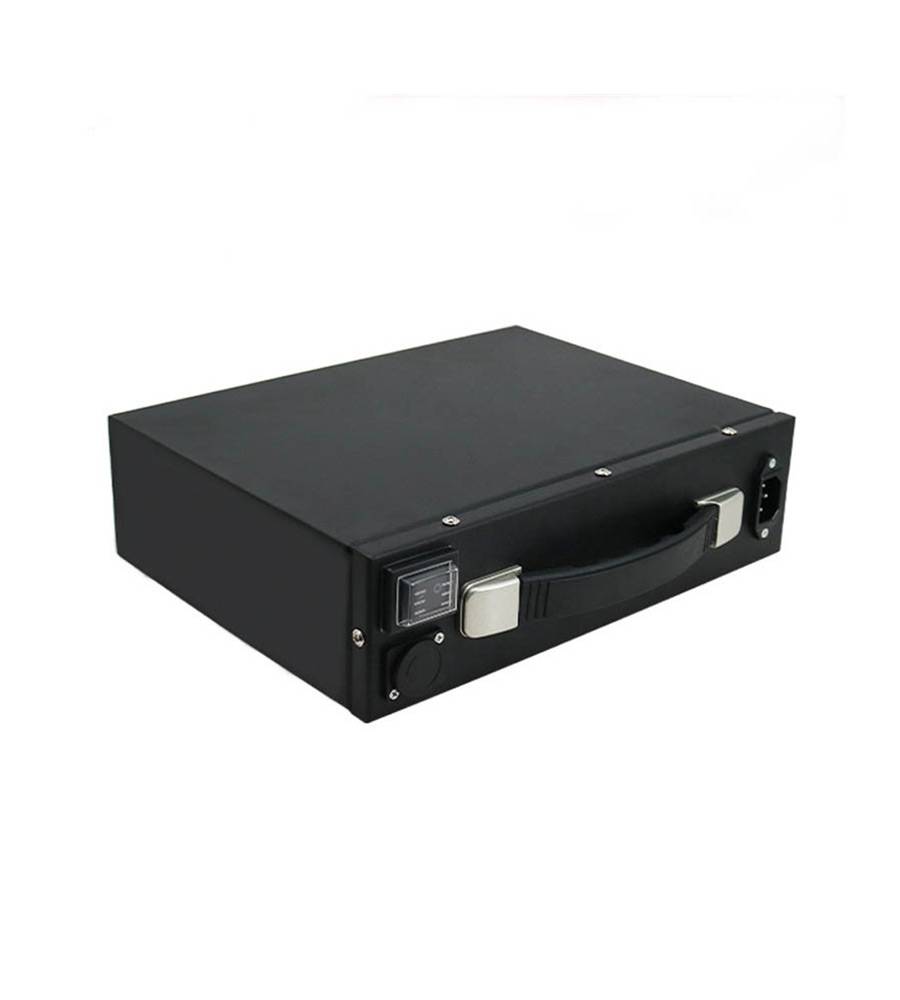
48V 20Ah
Wheelchair Lithium Batteries Wholesale
When searching for wholesale wheelchair lithium batteries, consider reputable suppliers that offer a variety of options for different wheelchair models. These batteries provide reliable power, long-lasting performance, and enhanced mobility. Choose from a range of capacities and voltages to meet the specific needs of your wheelchair.
What is the wholesale price of lithium battery?
You can click contact us or phone call us. We will give you multiple options of price.
Is Redway Power a trading company or factory?
Redway Power is a company with its own factory, integrating research, development, production, and sales.
How about the quality of Redway's LiFePo4 Battery product?
Redway Power boasts over 12 years of experience in LiFePO4 battery production and is an authorized supplier for CATL and BYD.
Can you do an OEM/ODM project?
Yes, we have engineers available to assist in designing and developing any related products.
What’s your MOQ?
MOQ varies according to battery voltage and capacity.
What payment terms can we accept?
We accept TT/Paypal/West Union, etc.
Wheelchair Lithium Battery Knowledge
Discover the benefits of wheelchair lithium batteries. Wheelchair lithium batteries are lightweight, durable, and eco-friendly replacements for traditional sealed lead acid (SLA) batteries. They offer unmatched reliability, longer lifespan, faster charging, and increased energy efficiency. Upgrade your wheelchair power system with lithium batteries for enhanced performance and convenience.
When Loading Lithium Batteries into Wheelchairs, What Must Be Observed?
Learn about the precautions when loading lithium batteries into wheelchairs. Only use lithium-ion batteries, as other types are forbidden. Protect the battery terminals from short circuit and ensure the battery is shielded from damage. Use a protective pouch or container to safeguard the battery during transportation.
- Battery Type: When loading lithium batteries into wheelchairs, it is crucial to use only lithium-ion batteries. Other types, such as lithium metal batteries, are not permitted due to safety concerns.
- Terminal Protection: To prevent short circuits, it is important to protect the battery terminals when loading lithium batteries into wheelchairs. This can be achieved by using appropriate insulation or covers to shield the terminals.
- Damage Prevention: The battery itself should be protected from damage during transportation. Placing the battery in a protective pouch or container helps to safeguard it from external impacts and potential hazards.
What Is the Life Expectancy of Lithium Wheelchair Batteries?
These batteries offer a significantly longer lifespan compared to traditional batteries. On average, lithium wheelchair batteries can last between 2 to 5 years, depending on factors such as usage, maintenance, and charging practices. With their extended lifespan, lithium batteries provide a reliable power source for wheelchair users.
- Extended Lifespan: Lithium wheelchair batteries outperform traditional batteries, such as sealed lead acid (SLA) batteries, in terms of longevity. On average, lithium batteries can last between 2 to 5 years, providing a longer-lasting power solution for wheelchair users.
- Usage Patterns: The life expectancy of lithium wheelchair batteries is influenced by how frequently and intensively they are used. Batteries that undergo frequent and heavy usage may experience a shorter lifespan compared to those used more moderately.
- Maintenance and Charging Habits: Proper maintenance and charging practices play a crucial role in maximizing the lifespan of lithium wheelchair batteries. Regularly inspecting and cleaning the battery terminals, following manufacturer guidelines for charging, and avoiding overcharging or deep discharging can help prolong the battery’s life.
What Is the Best Way to Store Wheelchair Batteries?
To ensure optimal performance and longevity, keep the battery at room temperature, around 77°F (25°C). Avoid extreme temperatures that can impact the battery’s lifespan and charging time. Charge the batteries overnight and store them in a consistent location for convenience.
- Temperature Control: The ideal temperature for storing wheelchair batteries is around 77°F (25°C). Extreme temperatures, both hot and cold, should be avoided as they can negatively impact the battery’s overall lifespan and charging efficiency.
- Overnight Charging: Developing a habit of charging the wheelchair batteries overnight is crucial. This ensures that the batteries are fully charged and ready for use the next day. Consistent charging helps maintain the battery’s capacity and extends its overall lifespan.
- Storage Location: It is recommended to store the wheelchair batteries in a consistent location. This helps in easy access and ensures that the batteries are protected from potential damage or mishandling. Having a designated storage area also helps in maintaining organization and convenience.
What Is the Memory of Wheelchair Batteries?
Wheelchair batteries, including lithium-ion and sealed lead-acid batteries, do not have a memory effect. Users can plug in their batteries at any time, regardless of the current charge level. Waiting for the battery to be completely discharged is not necessary. This feature ensures convenience and flexibility in charging wheelchair batteries.
- No Memory Effect: Unlike older battery technologies, such as nickel-cadmium (NiCd) batteries, wheelchair batteries, including lithium-ion and sealed lead-acid (SLA) batteries, do not develop a memory effect. This means that users can charge their batteries at any time, regardless of the current charge level.
- Flexibility in Charging: Wheelchair users can plug in their batteries whenever it is convenient for them, whether the battery is partially discharged or still has a significant charge remaining. There is no need to wait for the battery to be completely drained before recharging.
- Convenience and Usage: The absence of a memory effect in wheelchair batteries allows users to have greater flexibility in managing their battery charging routine. Users can ensure that their wheelchair batteries are always ready for use without worrying about discharging the battery completely.
Are Lithium Batteries Used in All Electric Wheelchairs?
Discover the types of batteries used in electric wheelchairs. Electric wheelchairs can be powered by either lead-acid batteries or lithium batteries. While lead-acid batteries have been commonly used for their durability, lithium batteries are gaining popularity due to their lightweight design, high energy density, and longer lifespan. Lithium batteries offer advantages such as faster charging times and higher energy efficiency, making them a preferred choice for many electric wheelchair users.
- Lead-Acid Batteries: Traditionally, electric wheelchairs have been equipped with lead-acid batteries. These batteries are known for their durability and ability to provide consistent power. They are suitable for users who prioritize reliability and are less concerned about weight and charging efficiency.
- Lithium Batteries: In recent years, lithium batteries have gained popularity in the electric wheelchair industry. These batteries offer several advantages, including lightweight construction, high energy density, and longer lifespan. Lithium batteries can be charged faster and provide higher energy efficiency, making them an attractive option for users seeking enhanced mobility and convenience.
- Choosing the Right Battery: The choice between lead-acid and lithium batteries depends on individual preferences and specific needs. Users who prioritize durability and reliability may opt for lead-acid batteries, while those seeking lightweight design and faster charging times may prefer lithium batteries. It is essential to consult with wheelchair manufacturers and healthcare professionals to determine the most suitable battery option for individual requirements.
What advantages does the DL 25Ah battery offer over lead-acid batteries?
The DL 25Ah battery from Dakota Lithium offers a myriad of advantages over traditional lead-acid batteries. Its lightweight design provides increased portability without compromising on power. This means easier handling and transportation for users. Additionally, the DL 25Ah battery boasts a longer lifespan compared to lead-acid alternatives, reducing the frequency of replacements and saving you time and money in the long run.
Moreover, Dakota Lithium’s innovative lithium technology delivers consistent performance throughout the entire discharge cycle. Say goodbye to voltage drops and hello to steady power output! The DL 25Ah battery also charges faster than lead-acid batteries, ensuring less downtime between rides or outings. With these superior features, it’s no wonder that more individuals are making the switch to lithium for their mobility needs.
How are two 12V batteries commonly used in scooters and wheelchairs?
Two 12V batteries are frequently used in scooters and wheelchairs to provide the necessary power for mobility. These batteries work together in parallel, doubling the capacity while maintaining voltage at 24V. This setup allows for longer operating times without compromising performance.
By having two batteries instead of one, users can enjoy extended usage before needing to recharge. Additionally, the use of two 12V batteries offers increased reliability as if one battery fails, the other can still power the device until replacement.
This configuration is a common practice in mobility aids like scooters and wheelchairs to ensure consistent and reliable power supply for individuals who depend on these devices for their daily activities.
What is the most common battery used by Pride Ultra Go-Go mobility scooters?
The most common battery used by Pride Ultra Go-Go mobility scooters is the 12V 12Ah lithium-ion battery. This compact and lightweight power source provides reliable performance for extended periods, ensuring a smooth and uninterrupted ride for scooter users. Unlike traditional lead-acid batteries, lithium-ion batteries offer higher energy density, longer lifespan, and faster charging times.
The Pride Ultra Go-Go mobility scooters are designed to be portable and convenient for users on the go. The 12V 12Ah lithium-ion battery perfectly complements this ethos by providing sufficient power in a compact form factor. With improved efficiency and reduced weight compared to lead-acid batteries, users can enjoy increased mobility without compromising performance.
Thanks to advancements in battery technology, Pride Ultra Go-Go mobility scooters now benefit from the superior capabilities of lithium-ion batteries. Users can experience enhanced reliability and durability with the 12V 12Ah battery, ensuring they can confidently navigate their daily activities with ease.
What is the warranty period for Dakota Lithium batteries?
When it comes to Dakota Lithium batteries, one of the key factors that sets them apart is their warranty period. Customers can rest assured knowing that these high-quality lithium batteries come with a solid warranty backing. The warranty for Dakota Lithium batteries provides peace of mind and confidence in the product’s durability and performance over time. With a reliable warranty in place, users can trust that they are investing in a long-lasting and dependable power source for their mobility devices. Dakota Lithium stands behind their products, ensuring customers have support and protection against any unexpected issues or faults.
What are the key features and benefits of the DL 25Ah battery from Dakota Lithium?
The DL 25Ah battery from Dakota Lithium is a game-changer in the world of mobility devices. With its lightweight and compact design, this lithium battery offers unparalleled energy density compared to traditional lead-acid batteries.
One key feature of the DL 25Ah battery is its long lifespan, providing reliable power for extended periods without needing frequent recharges. This means less downtime and more freedom to go about your day without worrying about running out of power.
Additionally, Dakota Lithium’s DL 25Ah battery boasts a fast charging time, allowing you to quickly get back on the move with minimal wait time. Say goodbye to long hours spent waiting for your scooter or wheelchair to charge up.
Moreover, this advanced lithium battery is maintenance-free, eliminating the hassle of regular upkeep that comes with lead-acid batteries. Enjoy peace of mind knowing that your power source is efficient and hassle-free.
What is the largest battery provided by Dakota Lithium for mobility scooters?
Looking for a battery that packs a punch for your mobility scooter? Look no further than Dakota Lithium. The largest battery they offer for mobility scooters is the DL 54Ah.
This powerhouse of a battery provides long-lasting energy to keep you on the move without worrying about running out of power. With its high capacity, it’s suitable for extended journeys or heavy-duty use.
The DL 54Ah is designed to be reliable and durable, ensuring consistent performance over time. Say goodbye to frequent recharging and hello to more freedom and independence with this top-of-the-line lithium battery.
Upgrade your mobility scooter with the Dakota Lithium DL 54Ah battery and experience enhanced efficiency and reliability like never before!
Which Dakota Lithium battery can replace 30Ah and 35Ah SLA batteries in scooters or wheelchairs?
The Dakota Lithium DL 25Ah battery is a game-changer in the mobility industry, offering unparalleled advantages over traditional lead-acid batteries. With its lightweight design, longer lifespan, and faster charging capabilities, it’s no surprise that this battery has become a popular choice for scooters and wheelchairs.
For those looking to upgrade their Pride Ultra Go-Go mobility scooters, the DL 25Ah battery is the perfect fit. Not only does it provide reliable power for extended periods, but it also comes with an impressive warranty period from Dakota Lithium.
In addition to the DL 25Ah model, Dakota Lithium also offers larger batteries for those needing even more power for their mobility devices. Whether you’re replacing 30Ah or 35Ah SLA batteries in your scooter or wheelchair, Dakota Lithium has you covered with high-quality options that will enhance performance and reliability.
Make the switch to Dakota Lithium batteries today and experience the difference firsthand – superior performance, longer lifespan, and peace of mind knowing you have a quality product backing you every step of the way. Trust in Dakota Lithium for all your mobility battery needs!
More Information
What are wheelchair batteries used for?
Wheelchair batteries are essential for powering electric wheelchairs, providing the energy needed for mobility. They function similarly to gas tanks in vehicles, storing energy that drives the electric wheelchair. These batteries come in different sizes and hold varying capacities of energy to cater to different mobility needs.

- Function of Wheelchair Batteries:
- Wheelchair batteries supply the energy needed to power electric wheelchairs.
- They store energy, much like gas tanks in vehicles, to drive the electric wheelchair.
- Variations in Size and Capacity:
- Wheelchair batteries come in different sizes and capacities.
- The size and capacity of the battery depend on the specific energy requirements of the wheelchair.
Wheelchair batteries are essential components that provide the energy necessary to power electric wheelchairs, enabling individuals to maintain mobility and independence. With variations in size and capacity, these batteries cater to different energy needs, ensuring individuals can rely on their electric wheelchairs for enhanced mobility.
How does a quantum motorized wheelchair operate?
Quantum motorized wheelchairs operate based on specific instructions provided by the manufacturer. Guided search filters can help users find detailed information on the operation of quantum motorized wheelchairs, including basic operation instructions and specific functionalities.
- Basic Operation Instructions:
- Quantum Rehab® provides basic operation instructions for their electric wheelchairs and power wheelchair accessories.
- These instructions outline the fundamental steps and functionalities of quantum motorized wheelchairs.
- Guided Search Filters:
- Users can utilize guided search filters to find more specific information on the operation of quantum motorized wheelchairs.
- These filters help users navigate through various resources and instructions related to specific models and functionalities.
Quantum motorized wheelchairs operate based on specific instructions provided by the manufacturer. Users can access basic operation instructions and utilize guided search filters to find more specific information about the operation and functionalities of quantum motorized wheelchairs. These resources aim to provide users with the necessary guidance to operate their quantum motorized wheelchairs effectively.
What type of batteries are used in mobility chairs?
Mobility chairs, such as wheelchairs, can utilize various battery types. Gel batteries and AGM (Absorbent Glass Mat) batteries are commonly used in mobility chairs. Gel batteries and AGM batteries offer distinct advantages, including maintenance-free operation and enhanced durability, making them suitable for powering mobility chairs.
- Gel Batteries:
- Gel batteries are a popular choice for mobility chairs.
- They offer maintenance-free operation and enhanced durability.
- Gel batteries are resistant to vibration and can withstand deep discharge cycles.
- AGM (Absorbent Glass Mat) Batteries:
- AGM batteries are commonly used in mobility chairs.
- They provide excellent reliability and long service life.
- AGM batteries are spill-proof and require minimal maintenance.
Mobility chairs, such as wheelchairs, rely on specific battery types to ensure efficient and reliable power for mobility. Gel batteries and AGM batteries are commonly used in mobility chairs due to their maintenance-free operation, durability, and suitability for mobility chair applications.
How do I choose the right battery for my wheelchair scooter?
When choosing a battery for your wheelchair scooter, it is important to consider factors such as battery type, voltage, compatibility, and maintenance requirements. Wheelchairs and scooters typically require two batteries with a 24-volt series connection. It is crucial to avoid mixing different battery manufacturers or technologies and using batteries that do not have similar date codes. Additionally, it is advised not to mix Gel batteries and AGM batteries.
- Battery Type:
- Different battery types, such as Gel batteries and AGM (Absorbent Glass Mat) batteries, are commonly used in wheelchair scooters.
- Each battery type has its own characteristics and advantages.
- Voltage and Compatibility:
- Wheelchair scooters typically require two batteries connected in series to achieve a 24-volt system.
- It is essential to ensure that the selected batteries are compatible with your specific wheelchair scooter model.
- Maintenance and Safety:
- Regular maintenance and proper charging practices are crucial for extending the lifespan and ensuring optimal performance of the batteries.
- Following the manufacturer’s guidelines and avoiding mixing different battery types or brands is recommended.
Choosing the right battery for your wheelchair scooter involves considering factors such as battery type, voltage, compatibility, and maintenance requirements. By understanding these considerations and following recommended guidelines, you can select a battery that ensures reliable and efficient operation of your wheelchair scooter.
Battery Types and Functionality
How do electric wheelchair batteries work?
Electric wheelchair batteries provide the electrical energy necessary to operate the power wheelchair. Similar to a gas tank in a car, the batteries of an electric wheelchair store the energy needed to power the motors and enable the wheelchair’s movement.

- Electrical Energy for Operation:
- Electric wheelchair batteries supply the required electrical energy for the power wheelchair to function.
- They store the energy needed to power the motors and enable the wheelchair’s movement.
- Comparison to a Gas Tank:
- Electric wheelchair batteries can be likened to a gas tank in a car.
- Just as a gas tank provides the fuel needed to operate a car’s engine, electric wheelchair batteries store the energy required to power the motors and drive the wheelchair.
Electric wheelchair batteries are responsible for providing the necessary electrical energy to power the wheelchair’s motors and enable its movement. Similar to a gas tank in a car, these batteries store the energy required to drive the electric wheelchair, ensuring reliable and efficient operation.
What should I consider when selecting power wheelchair batteries?
When selecting power wheelchair batteries, several key factors should be considered. These factors include the range and battery capacity, weight and size, battery life and durability, charging time and convenience, as well as safety and maintenance. Taking these factors into account ensures that the chosen batteries meet the specific needs of the power wheelchair and provide reliable and efficient performance.
- Range and Battery Capacity:
- Consider the range and battery capacity required to meet your mobility needs.
- Determine the distance you need to travel on a single charge and choose batteries with sufficient capacity.
- Weight and Size:
- Take into account the weight and size of the batteries to ensure compatibility with your power wheelchair.
- Consider the weight limits of your wheelchair and any portability requirements.
- Battery Life and Durability:
- Assess the expected battery life and durability to ensure long-lasting performance.
- Look for batteries with a reputation for reliability and a track record of durability.
- Charging Time and Convenience:
- Consider the charging time required for the batteries and the availability of convenient charging options.
- Evaluate the ease of charging and any additional features that enhance convenience.
- Safety and Maintenance:
- Prioritize safety by choosing batteries that meet industry standards and have built-in safety features.
- Consider the maintenance requirements and ensure they align with your capabilities and preferences.
When selecting power wheelchair batteries, it is crucial to consider factors such as range, battery capacity, weight, size, battery life, durability, charging time, convenience, safety, and maintenance. By carefully evaluating these factors, you can choose batteries that meet your specific power wheelchair needs, ensuring reliable and efficient performance.
Can I use a regular battery for a motorized wheelchair?
Motorized wheelchairs typically require specific batteries due to their power requirements. While regular batteries are 12-volt batteries, most motorized wheelchairs operate on a 24-volt system. As a result, two 12-volt batteries are needed to provide the necessary power for the motorized wheelchair to function properly.
- 24-Volt System:
- Most motorized wheelchairs utilize a 24-volt system for power.
- This higher voltage requirement ensures sufficient power for the motorized wheelchair’s operation.
- Need for Two 12-Volt Batteries:
- To meet the power requirements of a 24-volt system, two 12-volt batteries are typically used.
- These batteries are connected in series to provide the necessary voltage for the motorized wheelchair.
- Compatibility and Performance:
- Using regular batteries instead of the recommended 12-volt batteries may result in insufficient power delivery.
- It is important to use the appropriate batteries to ensure compatibility and optimal performance.
Using regular batteries may not be suitable for powering a motorized wheelchair due to the higher voltage requirements of a 24-volt system. It is important to use the recommended two 12-volt batteries connected in series to provide the necessary power for the motorized wheelchair to function properly and ensure optimal performance.
What are the benefits of using battery-powered wheelchairs?
Using battery-powered wheelchairs, such as electric wheelchairs, offers numerous benefits. Electric wheelchairs provide enhanced stability and safety, making them a safer choice when traveling over various surfaces. With a lower center of gravity and improved stability, electric wheelchairs reduce the risk of accidents and enhance user confidence and independence.
- Enhanced Stability and Safety:
- Electric wheelchairs are designed with stability in mind, making them a safer choice for users.
- The lower center of gravity and improved stability reduce the risk of accidents, even when traveling over uneven surfaces.
- Greater Mobility and Independence:
- Battery-powered wheelchairs, including electric wheelchairs, provide individuals with greater mobility and independence.
- These wheelchairs enable users to move around more easily, both indoors and outdoors, enhancing their overall quality of life.
- Ease of Use and Control:
- Electric wheelchairs are designed with intuitive controls, making them easy to operate and maneuver.
- Users can navigate through tight spaces and obstacles with greater ease and control.
- Reliable Battery Performance:
- Battery-powered wheelchairs offer reliable battery performance, allowing users to rely on their mobility aids throughout the day.
- Long-lasting batteries ensure that users can go about their daily activities with confidence.
Battery-powered wheelchairs, particularly electric wheelchairs, provide numerous benefits that enhance stability, safety, mobility, and independence for individuals with mobility challenges. These wheelchairs offer reliable battery performance, ease of use, and control, empowering users to navigate their surroundings with confidence and freedom.
Battery Replacement and Maintenance
How do I replace the battery in a Jazzy electric wheelchair?
While there is no current featured snippet available for replacing the battery in a Jazzy electric wheelchair, there are helpful tutorials and videos available online. These resources provide step-by-step instructions on how to replace the batteries in a Jazzy electric wheelchair, ensuring a smooth and successful battery replacement process.

- Step-by-Step Instructions:
- Online tutorials and videos offer step-by-step guidance for replacing the batteries in a Jazzy electric wheelchair.
- These resources provide detailed instructions, highlighting the specific steps involved in the battery replacement process.
- Tools and Precautions:
- The tutorials often mention the tools required for the battery replacement, ensuring you have the necessary equipment on hand.
- Safety precautions, such as wearing protective gloves and following proper battery handling procedures, are emphasized.
- Model-Specific Considerations:
- Different Jazzy electric wheelchair models may have specific instructions or variations in the battery replacement process.
- It is important to refer to tutorials or manuals specific to the model of your Jazzy electric wheelchair for accurate guidance.
While there is no current featured snippet available, online tutorials and videos provide valuable guidance on replacing the batteries in a Jazzy electric wheelchair. Following these step-by-step instructions and taking necessary precautions ensures a successful battery replacement process, allowing you to maintain the performance and reliability of your Jazzy electric wheelchair.
How can I maintain the battery life of a Jet 3 Ultra power wheelchair?
To maintain the battery life of a Jet 3 Ultra power wheelchair, utilize the battery charger effectively. The charger is essential in providing long life for the power chair batteries by ensuring proper charging. Regularly charging the batteries helps maintain their vitality and extend their lifespan, ensuring optimal performance of your Jet 3 Ultra power wheelchair.
- Effective Use of the Battery Charger:
- Utilize the battery charger provided with your Jet 3 Ultra power wheelchair.
- Follow the manufacturer’s guidelines and instructions for proper charging procedures.
- Regular Charging Routine:
- Establish a regular charging routine for your power chair batteries.
- Charge the batteries for the recommended duration to maintain their vitality and overall health.
- Extending Battery Lifespan:
- Proper charging helps extend the lifespan of the power chair batteries.
- Regular charging routines contribute to maintaining battery performance and longevity.
To maintain the battery life of your Jet 3 Ultra power wheelchair, it is crucial to utilize the battery charger effectively and establish a regular charging routine. By following proper charging procedures and maintaining a consistent charging schedule, you can ensure the vitality and longevity of the power chair batteries, optimizing the performance of your Jet 3 Ultra power wheelchair.
Are there any specific safety precautions for wheelchair batteries?
When handling wheelchair batteries, especially lithium-ion batteries, it is important to follow specific safety precautions. These include removing the batteries from the mobility device, protecting the battery terminals from short circuits, and using protective pouches to prevent damage to the batteries.
- Removing Batteries and Protecting Terminals:
- When not in use, lithium-ion batteries should be removed from the mobility device to prevent accidental discharge or damage.
- Battery terminals should be protected from short circuits by insulating them properly.
- Preventing Battery Damage:
- To minimize the risk of damage, it is advisable to place each battery in a protective pouch or case.
- Protective pouches shield the batteries from physical impacts and help maintain their integrity.
- Proper Storage and Charging:
- Store wheelchair batteries in a cool, dry place away from direct sunlight, extreme temperatures, or moisture.
- Follow the manufacturer’s instructions for proper charging procedures, including using the recommended charger and avoiding overcharging.
Ensuring the safety of wheelchair batteries involves specific precautions such as removing the batteries when not in use, protecting the terminals, and using protective pouches to prevent damage. By following these safety measures, users can maintain the integrity and performance of their wheelchair batteries while minimizing potential risks.
Specific Battery Models and Brands
Which batteries are compatible with Jazzy wheelchairs?
While there is no current featured snippet available for the compatibility of batteries with Jazzy wheelchairs, there are several compatible options to consider. These include 12V 35AH deep cycle batteries, SLA (sealed lead-acid) batteries, lithium replacement batteries, and other similar options. It is crucial to consult the manufacturer’s guidelines and specifications to determine the most suitable battery for your specific Jazzy wheelchair model.
- 12V 35AH Deep Cycle Batteries:
- These batteries are commonly used in Jazzy wheelchairs, providing sufficient power and capacity for extended use.
- They are designed for deep cycling, ensuring reliable performance and longer battery life.
- SLA (Sealed Lead-Acid) Batteries:
- Sealed lead-acid batteries are another compatible option for Jazzy wheelchairs.
- They offer reliable performance, ease of use, and are available in various capacities.
- Lithium Replacement Batteries:
- Lithium replacement batteries are gaining popularity for their lightweight design and longer lifespan.
- These batteries offer improved energy efficiency and may be suitable for specific Jazzy wheelchair models.
While there is no current featured snippet available, Jazzy wheelchairs can be compatible with various batteries, including 12V 35AH deep cycle batteries, SLA batteries, and lithium replacement batteries. To determine the most suitable battery for your specific Jazzy wheelchair model, it is important to refer to the manufacturer’s guidelines and specifications.
Are there electric chair scooters available?
Yes, electric chair scooters, also known as electric motor scooters, are available for adults. These scooters provide a reliable and convenient mode of transportation for individuals with mobility challenges. They offer ease of use, enhanced mobility, and are designed to promote independence and freedom of movement.
- Features and Benefits:
- Electric chair scooters provide a comfortable and efficient way to travel short to medium distances.
- They offer ease of use, with simple controls and adjustable settings to accommodate individual needs.
- Increased Independence:
- Electric chair scooters empower individuals with mobility challenges to regain their independence and mobility.
- They enable users to navigate through various terrains and environments with ease and confidence.
- Convenient and Reliable:
- Electric chair scooters provide a reliable and efficient means of transportation, reducing reliance on others for mobility.
- They offer features such as adjustable speeds, comfortable seating, and long-lasting batteries for extended use.
Electric chair scooters, also known as electric motor scooters, are available as a convenient and reliable mode of transportation for adults with mobility challenges. These scooters offer ease of use, increased independence, and a comfortable means of travel, enhancing the overall mobility and quality of life for individuals seeking greater freedom of movement.
Are there lightweight electric folding wheelchairs with lithium batteries?
Yes, there are lightweight electric folding wheelchairs available with lithium batteries. These wheelchairs offer the convenience of being foldable for easy transportation and storage. Equipped with lithium batteries, they provide reliable power and often feature a quick-charge function for added convenience.
- Portability and Convenience:
- Lightweight electric folding wheelchairs are designed to be easily folded, making them convenient for transportation and storage.
- Their compact size and foldability allow for hassle-free maneuverability in various settings.
- Reliable Power from Lithium Batteries:
- These wheelchairs are equipped with lithium batteries, which provide reliable power for extended use.
- Lithium batteries offer higher energy density, longer lifespan, and quicker charging times compared to other battery types.
- Quick-Charge Function:
- Many lightweight electric folding wheelchairs with lithium batteries feature a quick-charge function.
- This allows for faster charging times, providing convenience and ensuring the wheelchair is ready for use when needed.
Lightweight electric folding wheelchairs with lithium batteries combine portability, convenience, and reliable power delivery. These wheelchairs offer the benefits of being lightweight and foldable, making them easy to transport and store. Equipped with lithium batteries, they provide reliable power and often feature a quick-charge function for added convenience.
What options are available for electric wheelchair carriers?
There are several options available for electric wheelchair carriers, allowing for convenient transportation of mobility devices. These carriers can be attached to vehicles through various methods, including pull-behind trailers, hitch-mounted carriers, and rooftop attachments. Each option offers its own advantages in terms of ease of use and compatibility with different vehicles.
- Pull-Behind Trailers:
- Pull-behind trailers provide a dedicated space for transporting electric wheelchairs.
- They offer ample storage capacity and are suitable for longer trips or when multiple mobility devices need to be transported.
- Hitch-Mounted Carriers:
- Hitch-mounted carriers attach to the vehicle’s hitch receiver, providing a secure platform for electric wheelchairs.
- They offer convenience and ease of use, allowing for quick loading and unloading of the mobility device.
- Rooftop Attachments:
- Rooftop attachments are designed to secure electric wheelchairs on the roof of the vehicle.
- They utilize specialized racks or carriers to securely hold the mobility device during transportation.
Various options are available for electric wheelchair carriers, including pull-behind trailers, hitch-mounted carriers, and rooftop attachments. Each option offers its own advantages in terms of ease of use, compatibility with different vehicles, and storage capacity. By choosing the appropriate carrier option, individuals can transport their electric wheelchairs conveniently and securely.
Which battery is suitable for a Jazzy scooter?
The suitable battery for a Jazzy scooter depends on the specific model and requirements. Some compatible options include 12V 35AH deep cycle batteries, U1 batteries, and 12AH lithium batteries. It is important to consult the manufacturer’s guidelines and specifications to determine the most suitable battery for your specific Jazzy scooter model.
- 12V 35AH Deep Cycle Batteries:
- These batteries provide reliable power and capacity for extended use of Jazzy scooters.
- They are designed for deep cycling, offering longer battery life and consistent performance.
- U1 Batteries:
- U1 batteries are commonly used in power mobility applications, including Jazzy scooters.
- They offer reliable performance and are available in various capacities.
- 12AH Lithium Batteries:
- Lithium batteries are known for their lightweight design and longer lifespan.
- Some Jazzy scooter models may be compatible with 12AH lithium batteries, providing enhanced energy efficiency and durability.
The suitable battery for a Jazzy scooter depends on the specific model and requirements. Compatible options include 12V 35AH deep cycle batteries, U1 batteries, and 12AH lithium batteries. To determine the most suitable battery for your specific Jazzy scooter model, it is important to refer to the manufacturer’s guidelines and specifications.
Can I use the same battery for mobility scooters from Pride?
It is generally recommended to use the same type and model of batteries for mobility scooters from Pride. Mixing and matching different battery manufacturers or technologies is not advised, as it may result in compatibility issues and affect the performance of the mobility scooter. It is important to consult the manufacturer’s guidelines and specifications for the appropriate battery options.
- Consistency in Battery Type and Model:
- It is recommended to use the same type and model of batteries for mobility scooters from Pride.
- Consistency in battery type ensures compatibility and optimal performance.
- Avoid Mixing Different Battery Manufacturers or Technologies:
- Mixing and matching different battery manufacturers or technologies is not advised.
- This practice may result in compatibility issues and affect the overall performance of the mobility scooter.
- Consult Manufacturer’s Guidelines and Specifications:
- To determine the appropriate battery options, it is important to consult the manufacturer’s guidelines and specifications.
- Following the recommended battery guidelines ensures compatibility and reliability.
While it is generally recommended to use the same type and model of batteries for mobility scooters from Pride, it is important to consult the manufacturer’s guidelines and specifications. By adhering to these guidelines, users can ensure compatibility and optimal performance of their mobility scooters.
Best Practices and Recommendations
What are some top-rated power wheelchairs available?
While there is no current featured snippet available, reputable sources like U.S. News & World Report and Forbes provide lists of top-rated power wheelchairs. These lists consider factors such as overall performance, budget-friendliness, travel-friendliness, reclining capabilities, lightweight design, and more. It is important to research and consider individual needs and preferences when selecting a power wheelchair.
- Overall Performance:
- Top-rated power wheelchairs excel in terms of performance, including maneuverability, comfort, and reliability.
- These wheelchairs offer advanced features and technologies for a superior user experience.
- Budget-Friendliness:
- Some top-rated power wheelchairs are known for their affordability without compromising on quality and functionality.
- These options provide excellent value for money and meet various budget requirements.
- Travel-Friendliness:
- Travel-friendly power wheelchairs are designed for easy transportation and storage.
- They are lightweight, compact, and often feature folding or disassembling capabilities.
While there is no current featured snippet available, reputable sources like U.S. News & World Report and Forbes provide valuable lists of top-rated power wheelchairs. These lists consider factors such as overall performance, budget-friendliness, travel-friendliness, and more. It is important to research and consider individual needs and preferences when selecting the best power wheelchair.
How long do battery-operated wheelchairs typically last?
The lifespan of battery-operated wheelchairs typically ranges from 1 to 2 years, depending on factors such as usage patterns and battery quality. On average, an electric wheelchair battery can last for about 1 to 2 years. However, the longevity may vary based on factors such as daily usage duration. It is important to consider battery quality and proper maintenance to maximize the lifespan of a battery-operated wheelchair.
- Factors Affecting Lifespan:
- Daily usage duration plays a significant role in determining the lifespan of a battery-operated wheelchair.
- Battery quality and maintenance practices also impact the overall longevity of the wheelchair battery.
- Average Lifespan:
- On average, an electric wheelchair battery can last for about 1 to 2 years.
- This estimate provides a general guideline, but the actual lifespan may vary based on individual usage and battery quality.
- Importance of Battery Quality and Maintenance:
- Investing in higher-quality batteries can result in a longer lifespan for battery-operated wheelchairs.
- Regular maintenance, such as proper charging and storage practices, can also help maximize the lifespan of the wheelchair battery.
The lifespan of battery-operated wheelchairs typically ranges from 1 to 2 years, depending on factors such as usage patterns and battery quality. It is important to consider battery quality, daily usage duration, and proper maintenance practices to maximize the lifespan of a battery-operated wheelchair.
How do I choose the best power wheelchair for my needs?
While there is no current featured snippet available, reputable sources like Silver Cross, Harmony Home Medical, Quantum Rehab, and 1800wheelchair offer valuable tips and guides for choosing the best power wheelchair. Factors to consider include the type of power chair, drive system, living conditions, seating and positioning, controller type, and speed. Evaluating individual needs and preferences is crucial in selecting the most suitable power wheelchair.
- Type of Power Chair:
- Determine the type of power chair that suits your specific requirements, such as rear-wheel drive, front-wheel drive, or mid-wheel drive.
- Consider factors like maneuverability, stability, and terrain compatibility.
- Drive System:
- Choose the appropriate drive system based on your mobility needs, such as standard joystick control or alternative input methods.
- Evaluate features like responsiveness and ease of use.
- Living Conditions:
- Consider your living conditions, including indoor or outdoor use, narrow doorways, and uneven surfaces.
- Opt for a power wheelchair that offers suitable maneuverability and stability in your specific environment.
While there is no current featured snippet available, reputable sources provide valuable tips and guides for choosing the best power wheelchair. By considering factors such as the type of power chair, drive system, living conditions, and individual preferences, individuals can select a power wheelchair that meets their specific needs and enhances their mobility and independence.
Inquiry Now













